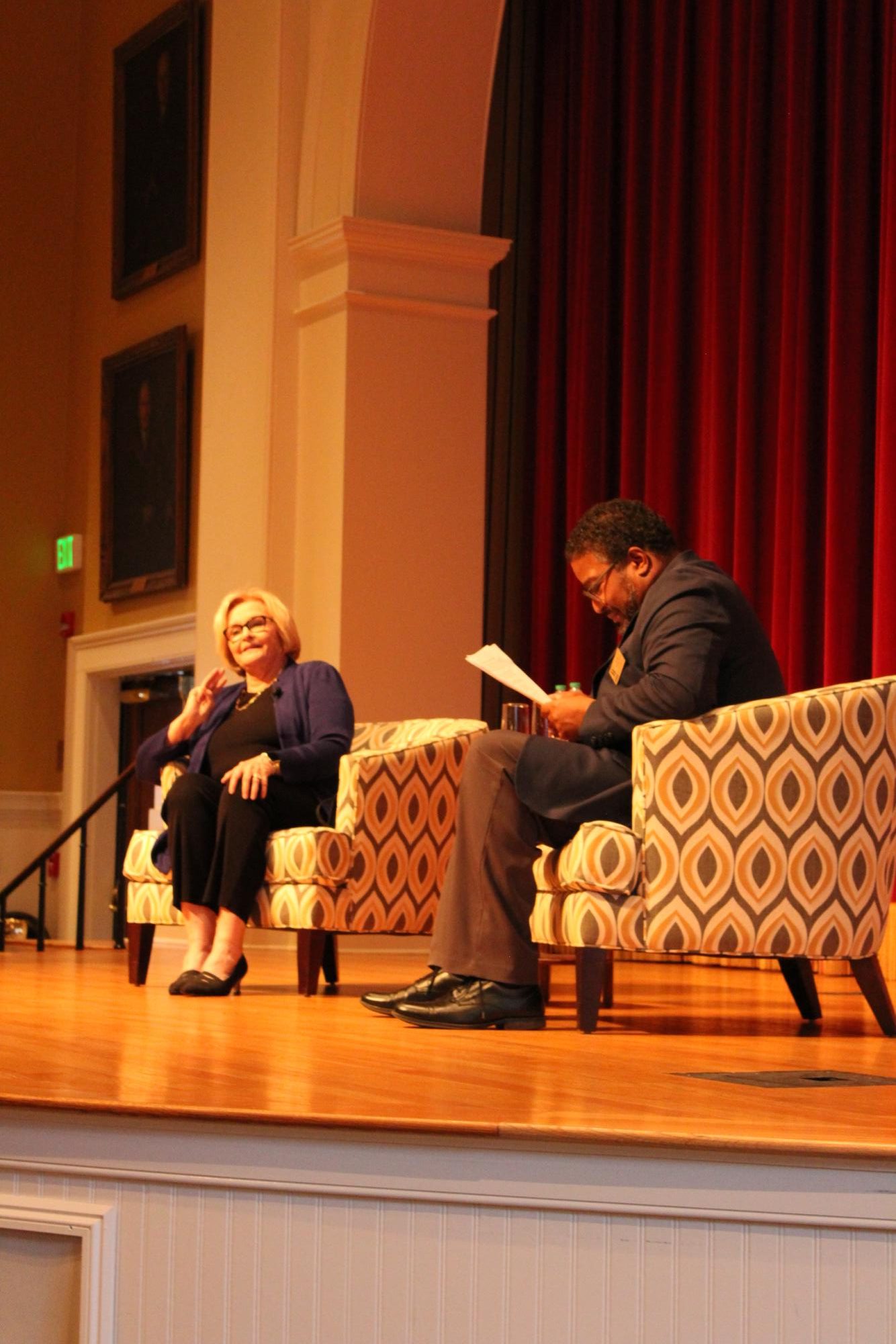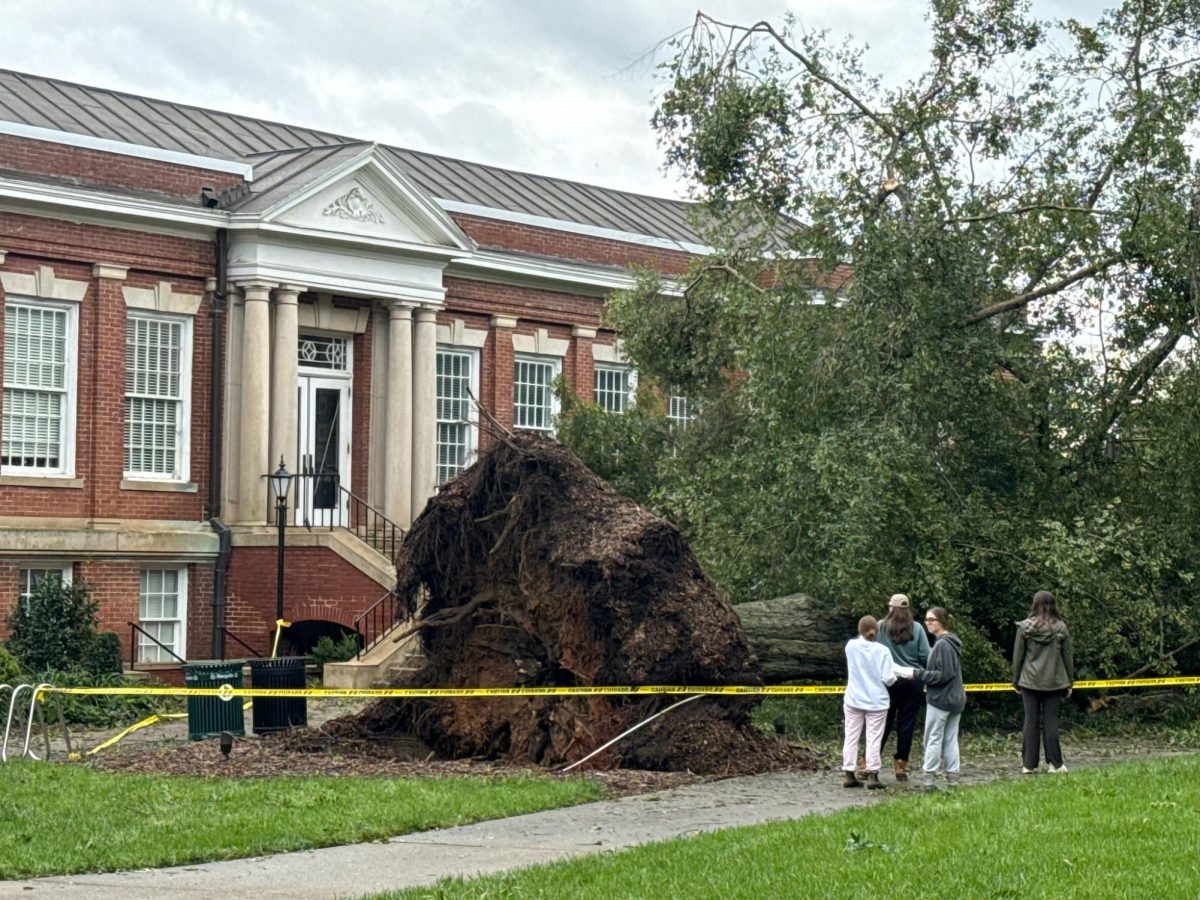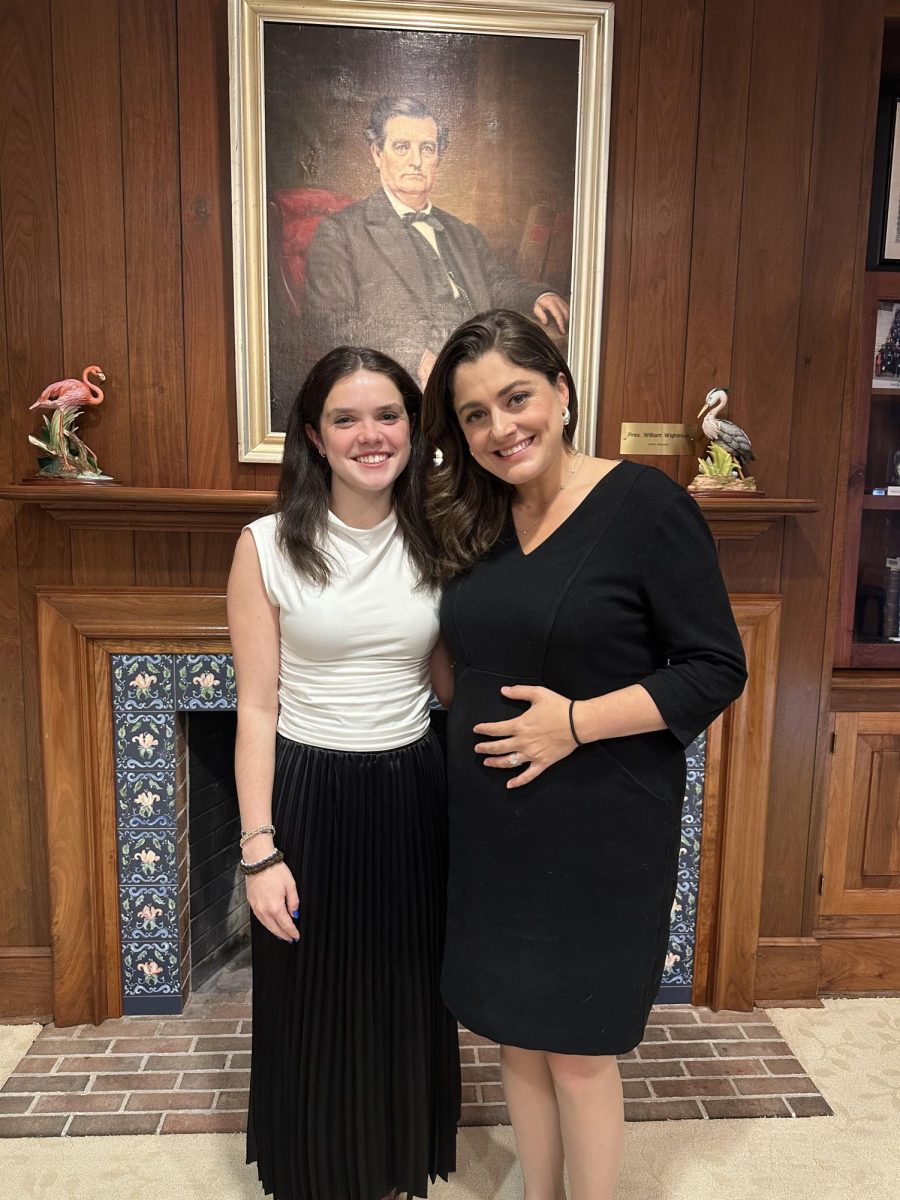On Oct. 21 Dwain Pruitt, Wofford College’s Chief Equity Officer and Vice President for Community Initiatives, spoke with former US Senator Claire McCaskill to discuss the Future of American Democracy.
After completing law school, McCaskill embarked on her career as an assistant prosecutor in Kansas City, before being elected to the Missouri House of Representatives. As a pioneer she became the first woman elected as Jackson County prosecutor, establishing the nation’s first drug courts and a revolutionary domestic violence unit.
In 2006 McCaskill became the first woman elected to the Senate from Missouri, usurping the seat once held by Harry Truman.
In reminiscing on her adolescence McCaskill refers to watching the news with her family and discussing what they watched during dinner. This parental approach taught McCaskill from a young age the cruciality of being informed and caring about events globally.
However, information is dispersed and received differently than before the age of mass digital media. McCaskill pointed to how Americans consume information as an all-encompassing threat to American democracy.
“You can pick where you want to get your information. Once you pick it, you are fed algorithms to make sure that the information you’re getting affirms what you already believe,” said McCaskill. “You are never forced to go out of your affirmation bubble.”
Due to the commonality of personalized algorithms and their addictive nature people are less likely to search for, and thus less likely to hear perspectives that may challenge their own.
“The people who are loudest are the people who feel most strongly, and typically they are more extreme,” said Senator McCaskill.
The founding fathers framed the Constitution with the belief that compromise is one of the strengths of our democracy. They allowed for power to go to minorities and for the American people to send one party to the House and Senate and another party to the White House.
“They weren’t expecting TikTok and Facebook and all the social media stuff that does everything in its power to keep compromise from happening,” said McCaskill. “So the depth of compromise has now become the most dangerous thing to do on Capitol Hill.”
Due to the overconsumption of short-term media, there has been a decline in young people’s search for varying sources. Motivation for consuming news is something McCaskill instills in her children because she believes it is important to understand varying perspectives.
McCaskill recalls her grandparents’ front porch and corner drug store where her grandfather would get lunch. In these places, people who may not have the same ideological views or background, would talk to one another and exchange differing ideas.
“We have in many ways evolved where there is not natural places of unity,” said McCaskill.
This election cycle Supreme Court cases have been a central subject of debate. Disinformation surrounding the effects of these cases is something people need to educate themselves on.
“The idea that we think we have some handle on who’s paying for campaigns right now is a fiction.”
McCaskill uses her election as an example of this fiction. She raised $40 million in hard money; hard money is the individual contributions made to a candidate that are publicly disclosed over twenty dollars. This allows the American people to research who’s giving money. It’s transparent.
“My opponent raised maybe $10,” said McCaskill. “But guess what? He outspent me because all the money came from behind the dark curtain.”
The 2009 Supreme Court case Citizens United v. Federal Election Commission overturned a century-long election spending restriction. This allows wealthy donors and corporations to fund a campaign without publicly coordinating.
“There’s absolutely no accountability for who is funding these elections, and I think it is incredibly damaging to a democracy that I hold here,” said McCaskill.
Americans have been struggling to maintain respectful discourse without name-calling. Although McCaskill conceded that she has made a post that was perhaps too passionate in the past, she identifies a problem in the people who enjoy being cruel and hurtful online.
“People are exhausted by the kind of politics that have just totally gripped our country now for almost a decade,” said McCaskill. “I think we really want some normalcy, and not this chaotic kind of crazy thing has been said or been done today?”
Dr. Pruitt inquired whether or not McCaskill thought we could maintain a democratic republic. McCaskill believes in American values and the goodwill of the majority of people.
“I think by and large our government is full of people who want to do the right thing,” said McCaskill. “There’s some oddballs now that make me sick to my stomach, but the majority of people in government want to do the right thing for their country and their community.”
Although there is no definite answer to this question McCaskill chooses to stay optimistic, having faith in the American people.
“I believe that people will get more active and become more involved if they see the government taking a turn that is really un-American,” said McCaskill.




